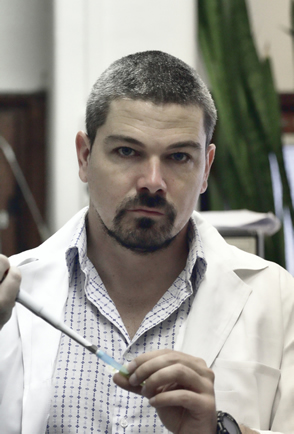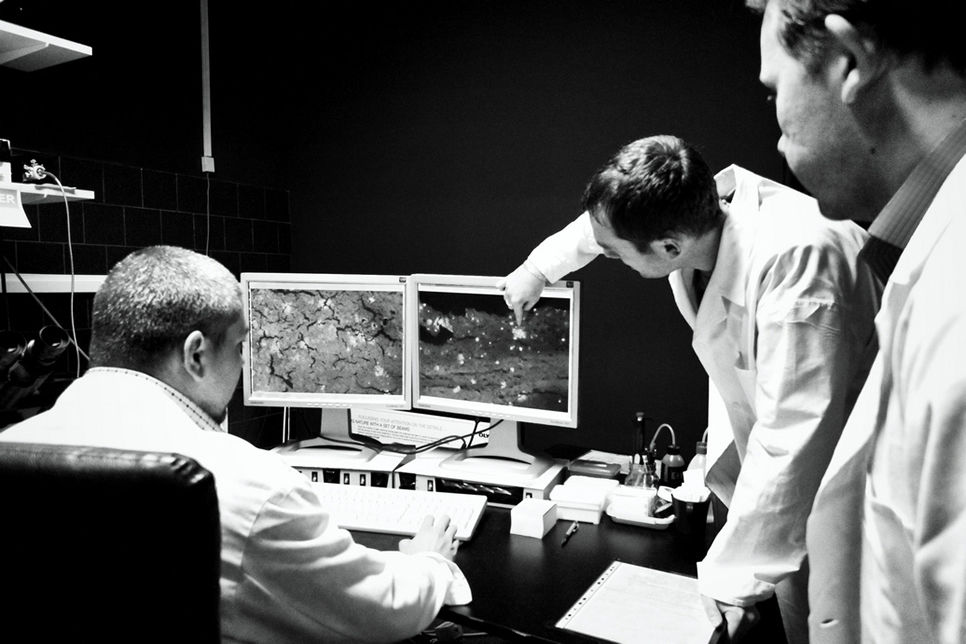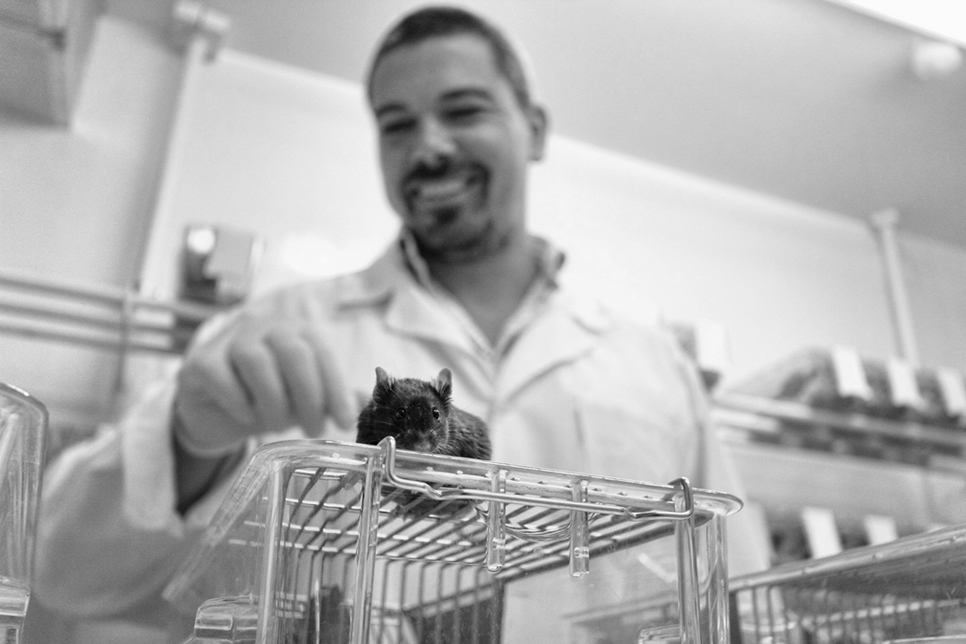
Tamás Letoha medical researcher and managing director
One of them is Pharmacoide Ltd. exploring new potential drug targets in the central nervous system under a funding granted by the NRDI Office through a scheme entitled Support to Hungarian Participation in the EUREKA Programme (EUREKA_16).
The goal of the Support to Hungarian Participation in the EUREKA Programme (EUREKA_16) scheme is to support Hungarian participation in the EUREKA programme set up to facilitate the involvement of entrepreneurs – in particular small- and medium-sized enterprises – in international research and development cooperation. This may help in improving the marketability of Hungarian enterprises and their competitiveness on the international scene. This funding encourages R&D cooperation between researchers and entrepreneurs allowing for the implementation of near-to-market projects and the development of prototypes or new products, technologies or services.
EUREKA cooperation established in 1985 is meant to strengthen Europe’s competitiveness on the global market through the coordination and support of market-oriented research, development and innovation projects realized in international cooperation. The vast majority of EUREKA projects are implemented with the participation of enterprises; however, universities and research institutions are also actively involved in the programme. More than 6,000 projects of a total budget or EUR 37 billion have been completed since the establishment of EUREKA. Projects funded under EUREKA focus on the near-to-market R&D phase targeting the development of innovative products, technologies and services.
Pharmacoidea Kft. of Szeged, established in 2006 as a company of biologists, chemists and medical doctors, was granted funding by the NRDI Office to participate in the EUREKA programme.
The goal has always been to utilize the knowledge accumulated through academic research as efficiently as possible in practice. It has been decided at the start that our research would focus on high unmet medical need diseases, such as neurodegenerative disorders accompanied by a progressive loss of neurons and we would explore new chemical entities to cure or contribute to the prevention of such diseases, says Tamás Letoha, medical researcher and managing director. One of the incurable diseases affecting large numbers of people of our age is Alzheimer’s disease. It has been observed however that extracts of certain herbs efficiently block molecular processes that play a role also in the disease.
Given the current state of our knowledge, Alzheimer’s disease is incurable already at the time of establishing the diagnosis. The disease is accompanied by a loss of neurons in the central nervous system and medical science is unable to regrow dead neurons as yet. Therefore, patients are facing a lengthy and inevitable period of deterioration. Even the currently available drugs cannot stop and reverse this process. The researchers at Pharmacoidea Kft. though consider that the active ingredients of certain herbs may be useful in the fight against this disease.
Certain herbs affect not only the nervous system but also the immune cells and the cardiovascular system and bear a strong anti-inflammatory and antioxidant potential. Owing to this, they may ensure healthy functioning of the nervous system, the medical researcher argues. Herbs produce numerous types of active ingredients. The real intellectual challenge is to select those compounds of these immense molecule libraries that are effective and then to figure out their mechanism of action.
But Pharmacoidea is engaged not only in herbal medicine research, it also has an important division in early drug development. In 2011, the company joined the Innovative Medicines Initiative (IMI), the biggest drug development programme of Europe created by the European Commission. In his former research project, Tamás Letoha has been developing new methods to deliver macromolecules (mainly proteins and peptides) into the cells. And at that time, IMI launched a call concerning this topic (development of a technology to deliver biopharmaceuticals into the cells) and this gave grounds for the cooperation.
Since 2012, we have been involved in drug development programmes the opportunity for which had been created by the call launched by IMI in 2011, says Tamás Letoha. Currently we are mining literature data of Alzheimer’s disease to find new molecular targets that could be used both in diagnostics and therapy. After the identification of such targets, we are going to be the ones also to carry out their preclinical testing.

In Alzheimer’s disease, toxic proteins settle on the neurons of the central nervous system and cause chronic inflammation resulting in the loss of neurons. Nevertheless, these aggregated proteins do not stop here but, similarly to prions, they spread from neuron to neuron like a virus and destroy a large part of the neural tissue. The researchers at Pharmacoidea Kft. are currently examining in what ways membrane proteins participate in delivering such disease agents into the neurons.
Intensive research into finding the cure to Alzheimer’s disease is justified by the fact that the mental and physical deterioration of patients happens so fast that they quickly lose their self-sufficient abilities, thus representing a burden for both the society and their families. This problem has to be solved, especially if we consider today’s aging society, argues Tamás Letoha. In this project, funded by the NRDI Office, we are going to examine such glycoprotein targets that had already been assessed through computer interaction modelling by the researchers of the Institute of Biochemistry of the Romanian Academy. We are going to map the potential molecules (ligands) joining these glycoproteins and to reveal their interference with neurodegeneration.







